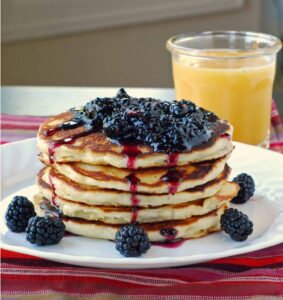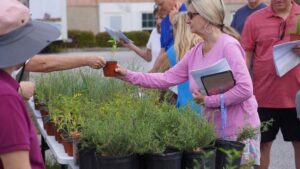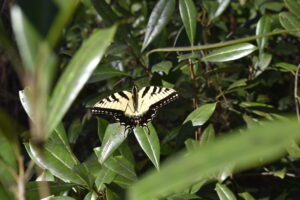Hamilton County is the Wild Blackberry Capital of the Sunshine State. This is rather impressive as most of North America’s blackberry production occurs on the West coast due to weather needs. Blackberries, like many deciduous berries, require a set amount of chill hours to produce fruit. The phrase ‘chill hours’ refers to the accumulation of hours at temperatures under 45°F. Blackberry varieties have chilling requirements ranging from 300 to 900 hours; here in North Florida, the average chill hours range from 500-700. Suffice to say, Hamilton County farmers’ work hard to make sure their berries produce prolifically! 
To celebrate, the City of Jasper is hosting a Wild Blackberry Festival on June 9th. Visit Heritage Village from 8am-1pm to enjoy a jam-packed day of family fun. The festival kicks off with a blackberry pancake breakfast. Other entertainment throughout the day includes a concert by Teddy MacElvis and the Legends, craft vendors, the Miss Blackberry pageant, kids games, and food vendors. And, of course, all things blackberry! There will be homemade cobblers, jams, jellies, and pints of fresh-picked blackberries. There will even be blackberry plants for sale if you want to try your hand at growing your own.
Learn more by visiting the Festival Facebook page.


 Find the complete tour guidebook by
Find the complete tour guidebook by 
 Jackson County is once again offer the Summer Fun Passport! The Passport kicks off Memorial Day Weekend, and gives kids’ the chance to explore, play, and discover the coolest spots in Jackson County. The Passport will include point collection, prizes, and unforgettable memories. Kids’ will receive their Summer Fun Passport from their school. There will also be some available at the Russ House in the Visitor Center. Keep an eye on the
Jackson County is once again offer the Summer Fun Passport! The Passport kicks off Memorial Day Weekend, and gives kids’ the chance to explore, play, and discover the coolest spots in Jackson County. The Passport will include point collection, prizes, and unforgettable memories. Kids’ will receive their Summer Fun Passport from their school. There will also be some available at the Russ House in the Visitor Center. Keep an eye on the 




